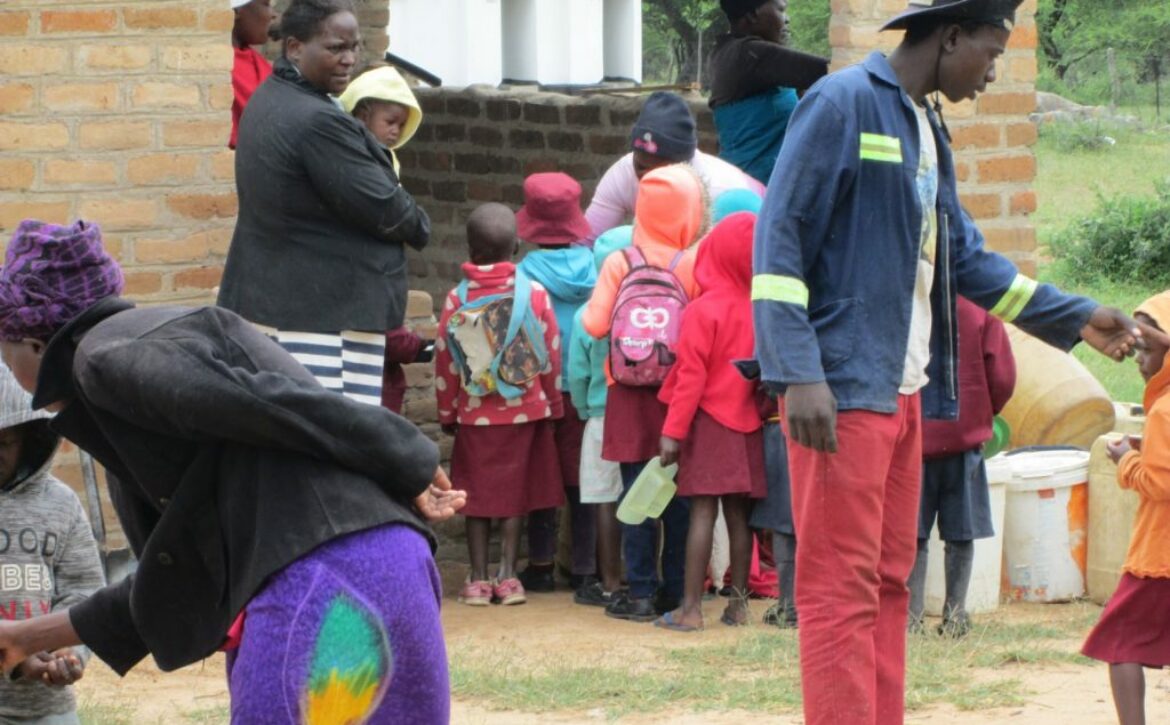Helping Communities with sustainable programmes

Sibusisiwe Sithole sheds light on the programmes that Uluntu Community Foundation is running in Matabeleland to support women and children.
Formed in 2008 by a woman passionate about women and children’s rights, the Uluntu Community Foundation is based in Zimbabwe. Most of the programmes are carried out in the Matabeleland province, near Bulawayo.
The organisation is currently undergoing a transitional change towards stability, having experienced a few years of uncertainty. After the passing of one of the founding directors, Uluntu is in the process of rebuilding the foundation of the organisation in order to increase its size and reach of impact. The Southern Africa Trust, who has partnered with Ulunu by means of a monetary grant, is working alongside the team to assist with capacity building and restructuring of the organisation. With this support, Sithole and her team are able to design and implement their 3-year strategy, which includes the community empowerment programmes that have been enabled by the grant received from the Trust.
With a vision of promoting self-reliant communities, Uluntu seeks to alleviate poverty and hunger using sustainable and community-driven solutions. Their approach, says Sithole, is to partner with communities by providing training and helping community leaders identify solutions to pressing issues. “We do not want to disempower or spoon-feed communities by simply bringing aid, set up programmes and disappearing afterwards.”
Meeting needs
By working with community members, Uluntu have found the programmes are more sustainable and continue to me. One of their programme that has been running for the past seven years alongside the Roger Federer Foundation, has resulted in the construction and renovation of Early Childhood Development (ECD) centres, more especially in rural areas. In the past, because ECD was not part of the education system in Matebeleland, children would progress straight from nursery or daycare centres to primary school. The Uluntu stepped in to help integrate ECD centres in the school system and implement income-generating programmes to support the centres. They also encouraged the community members to use the school fields and gardens to grow food, which was filtered back into the feeding scheme and now forms part of the project. This programme used grant money available to purchase building materials, with the labour given by skilled members of the community, thereby enabling ownership and responsibility. Income-generating projects (such as chicken rearing, tuckshops) have grown from the initial phases, with goat and cattle rearing, meeting the needs of the community.
Changing minds and lives
Unlike other larger organisations, Uluntu does not offer monetary incentives to community members for their labour. It has been a struggle for Uluntu to help some of the communities see the long-term value of their projects, however Sithole and her team tirelessly work to shift the mindset of people to be part of the implementation of sustainable solutions.
Looking back at 2020 and the impact that COVID19 has had on their organisation, one of the biggest challenges that Uluntu has faced has been slowing down their transitional phase. Being forced to work from home and with travel restrictions, they were unable to reach their communities and monitor their programmes. School closures also put a halt on the ECD programmes, however the situation is slowly returning to normalcy.
While Uluntu runs other programmes, Sithole explains that their focus remains on women and children. “Most of the men are not in the communities – they are in South Africa, Botswana, Namibia or even Zambia, looking for greener pastures. The women are left taking care of the families and the children.”
Uluntu – meaning ‘people, as a whole’ – is a name that embodies the work of this organisation: helping people do more than just survive but build fulfilling whole lives.

The Southern Africa Trust acknowledges and thanks the Charles Stewart Mott Foundation for their support and partnership of this work.









